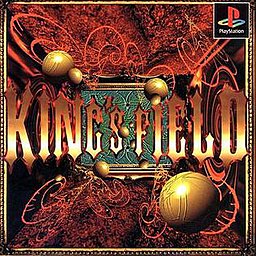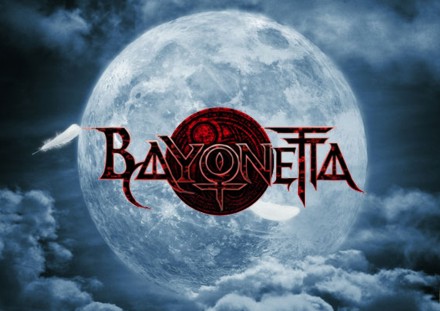It's 2011 and many have already posted their "Top Ten of 2010" lists. Every year I find it hard to take part in such list-making, mainly because I spend my year playing whatever the hell I feel like, regardless of whether it is old or new. So here's my rather unconventional list for 2010. These are the games I played last year, why I played them, and what I thought of them.
2009 was the year of Demon' Souls, one of the best games of the decade, so naturally I decided to explore its roots. By the new year I had got as far as the original King's Field, though not the one you might remember. The "King's Field" we got in the West was actually King's Field II. King's Field I never came out here, but was fan-translated some time ago.
Though I never finished it, I played King's Field a good while, enough to see that it was even more like Ultima Underworld than its sequels. Demon's Souls reminded more of Underworld than any game had since Looking Glass Studios went out of business, and it was surprising to me how much its spiritual predecessor felt like a "Japanese Underworld", right down to the color palette, making it an interesting alternative to the actual Japanese port of Ultima Underworld, a game that was strangely (if fascinatingly) crippled by its cultural transition.
King's Field held my interest for a few reasons. It's a rare example of early 3D gaming (circa 1994, two full years before the Playstation hit non-Japanese regions) and, even more rarely, a Japanese first-person game, something that is uncommon even now. I'm not sure if there even is an earlier example of a first-person game by a Japanese developer, which gives the game historical value. It also, like many pre-millennium games, isn't interested in holding the player's hand. It just drops you into a (mostly) non-linear world and let your exploration alone be the shaping force behind the experience. If not for the fantasy setting, it would be a survival horror game in the most classic sense (much like Demon's Souls) which made it absorbing despite its crude simplicity.
Bayonetta I think was the first triple A game I played last year, and I don't have much to say about it other than I thought it was not terribly deserving of the controversy it generated. A videogame crassly objectifying women isn't news, and I personally didn't find Bayonetta's deliberately outrageous attitude towards its own indulgences as unique as many bloggers and critics seemed to.
As a game I found Bayonetta more interesting that your average brawler, with a rich move-set and more expressive strategic possibility than, say, God of War. I also found its world extremely beautiful, and its vision of Purgatory--in which normal humans are oblivious to the demonic battles going on around them--a rare example of interesting metaphysics woven into incidental level design. The writing however, in spite of being somewhat self-aware, was mostly clumsy, and the gameplay was samey enough after a while that I finally lost interest.
If anything, Bayonetta made me think a lot about what a much smarter, more daring game could do with similar ideas. I actually love the idea of using sex as a weapon, and positioning that against Christianity as an opposing force seeking to snuff it out has extremely rich--and exquisitely controversial--potential. Of course, being a Japanese game, Bayonetta is either unaware of or uninterested in making any statements about the connection between Western religion and sexual repression, but I can't look at the game without imagining how one might transform it so. I'd love to play a game where you were a witch beating the shit out of male Puritans, who were so stunned by your naked body they literally would stand agape as you pummeled their self-righteous faces into mush. This probably has a lot to do with the fact that I was reading His Dark Materials while playing Bayonetta as well, and wondering why a game about a war between Heaven and Hell couldn't have... well... more balls, so to speak.
Another game I played mainly because of its tenuous connection with Demon's Souls. (It was also by From Software, but in collaboration with an outside developer.) It was nice, but I remember losing interest when I realized Zelda was its only real reference point. The art style, somewhat misleadingly, presents the game as a love-letter a much broader range of 8-bit games, including Dragon Quest, and I think it would haven been more interesting if the gameplay had been a similarly eclectic mish-mash of styles. As is, Dot Heroes is essentially Zelda 1 re-skinned, with a lot of jokey dialog about 8-bit game conventions, but with no challenging of those conventions within the actual game design.
If you want to know what I think of Rockstar's current best-seller and critical darling you can read my previous posts on the subject. Suffice to say, I was not as taken with Redemption (or John Marston) as most people were, though I do admit that, for a blockbuster game, I enjoyed it a fair amount. This will no doubt be remembered as the game of 2010, but for me it was the game that proved that the audience Rockstar insists on pandering to will forever prevent them from generating work of moral or political sophistication.
Over-reliance on RPG conventions aside, Peace Walker was a refreshing return-to-form for Hideo Kojima. MGS4 was a bit of a travesty, an unfocused mess that's conceptual sloppiness and dearth of imagination was obscured by its stellar production value. Peace Walker, however, is a clear, confidant, and clever game that knows exactly what it's going for and achieves it with elegance... primarily in terms of gameplay but also, with a few caveats, in terms of story as well.
The first half, in which Kojima and his co-writers weave together myth and politics in Cold War-era South America, is pretty great, but then again I suppose I'm partial to a game where the Nicaraguan Sandinistas are portrayed as good guys. (Suck it, Reagan!) The second half, which suffers (though not greatly so) from the same navel-gazing Metal Gear mythology fan-wanking that destroyed MGS4, isn't as sharp or interesting, but still manages to crash-land into a semi-intriguing meditation on the symbiotic relationship between peace and war.
Gameplay-wise Peace Walker is note-worthy for how it brilliantly condenses 20 years of game design into a single, streamlined gameplay system, hacking off time-honored conventions left and right (no crawling?) but somehow retaining the essence of the franchise. It's the game that people who think Kojima isn't a game designer (or, at least, doesn't employ them) should play... though they obviously won't.











